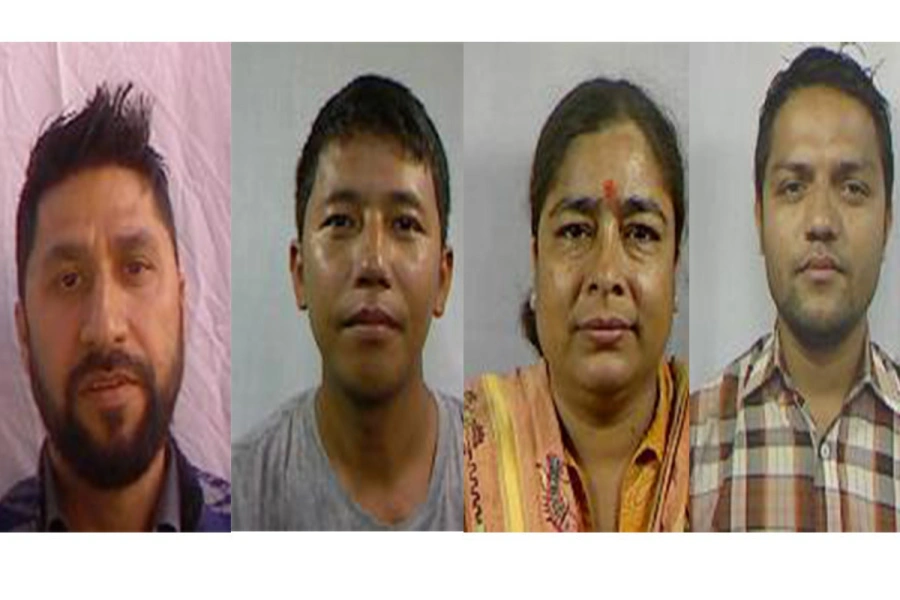Let’s bring in remittance as much as we can through skills but not at the cost of our emotional wellbeing
With festivals, our atmosphere is filled with celebrations. But a grim void of missed family members echoes around many houses of Nepal. Nowadays, on these occasions, the exchange of blessings between relatives via online video chat services from overseas is almost as common as that with the physical presence of family members inside the country. Many of us are obliged to carry out these bland celebrations with the money sent by our beloved but without their presence. This underlying emptiness in the social spectrums of Nepal protrudes out eminently in these festive moments.
I remember a conversation with a visitor from the United States. She mentioned Grief Counseling course—the course that deals with bereaved people and the process of consoling the sufferers who lose their loved ones. Meanwhile, I could recall a German couple I met a year ago. They shared with me their plan to start an organization to work for consoling people in situations when family members return from the funeral after losing someone. I couldn’t help contemplating how these people give such value to the emotional impacts of life incidents. Universities in Germany are offering courses on this and they are planning starting an institution to address such issues.
Ignoring emotions
Karan Johar's films have real emotions, says Bhumi Pednekar

In our society, we respond to major life incidents with social, financial, cultural and even religious aspects but we rarely think of emotional aspects.
It is perplexing to see how success, achievement, happiness and satisfaction are defined around us. A single mother has to send her only son to work abroad, no matter how hard and painful lonely days she will have to pass after that. A wife has to compromise with her desires and feelings so that her husband can earn some fortune for the family by working hard in the far-off lands. A son cannot attend the funeral of his father because he cannot leave some Western country he is in at the moment because he is living there illegally. In all of these situations, which occur in our society with troubling frequency, emotion has been overlooked.
We are trying to achieve happiness, a wild goose chase, at the cost of our emotional wellbeing. But happiness and prosperity which we earn by ignoring emotional attachments with our people finally end up in a mirage.
The emotional costs of migration have been amply depicted in mainstream media, music, movies and literature. For example, a popular hit single ‘Suna Saili’ attracted millions of viewers in Youtube in a matter of few weeks. Chakka Panja grossed the record breaking revenue in Nepali movie industry. Both of these depict agony of our society that has been enduring the misery of social and emotional hazards which have emerged as byproducts of remittance, a major source of income for the country.
It is not just the disadvantaged individuals from the undeveloped regions who have to sacrifice their emotional values at the cost of foreign income. Many upper middle class, skilled and educated people have also compromised with emotional happiness to ensure a bright and sophisticated future abroad. Kids are impelled to study the courses to ‘ensure’ a good prospect abroad, whether they like it or not. Whether it is about getting married or having babies, economic issues predominate. It is time to reflect on what kind of example we are setting for our future generations.
Many countries are striving for Gross National Happiness after sustaining years of economic growth with gross domestic products. Nepal still relies considerably on remittance and foreign aid. In this situation, taking strides for national happiness seems to be countless miles away for Nepal but it is never too late to keep the social progress and national economic growth in harmony. It is extremely important to make emotional wellbeing the major aspect of our economic and national development.
This might sound like an unusual proposition for a country like Nepal where people are still struggling for basic amenities. But in world history, many civilizations have gone through the hard times. But they have been able to come to terms with the crisis not only through economic wellbeing but also emotional wellbeing of people.
We need to redefine happiness and prosperity. We need to teach our children that happiness does not only mean having enough money for luxury. Let’s bring in remittance as much as we can through skills but not at the cost of our emotional wellbeing.
Perpetuating ignorance to emotional wellbeing might result in an irremediable scarcity of dreamers, inventors and innovators the country will need in the future.
narayan.mourya@gmail.com







































